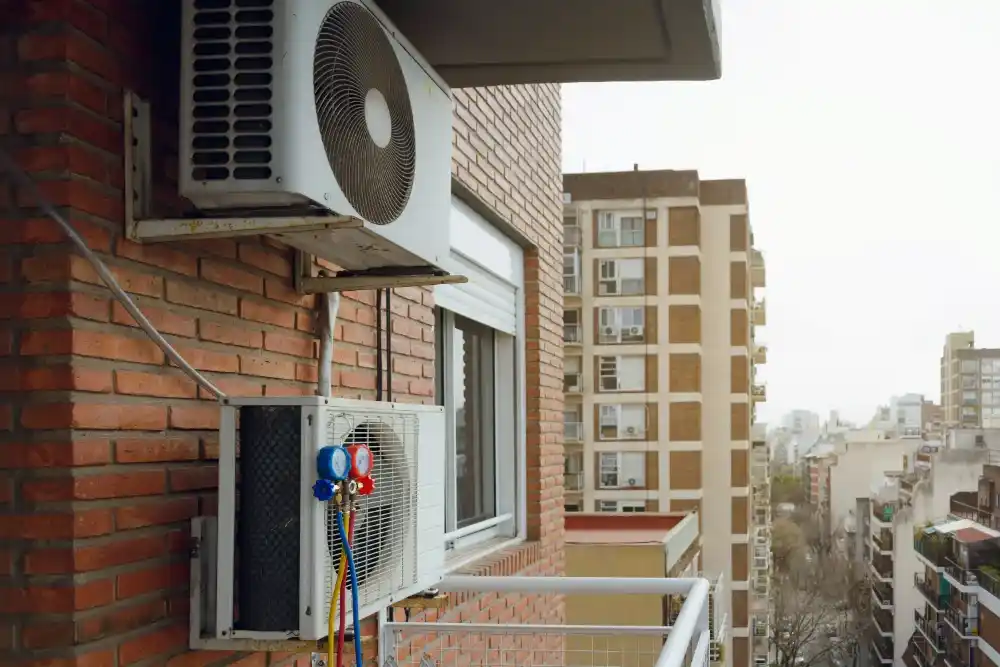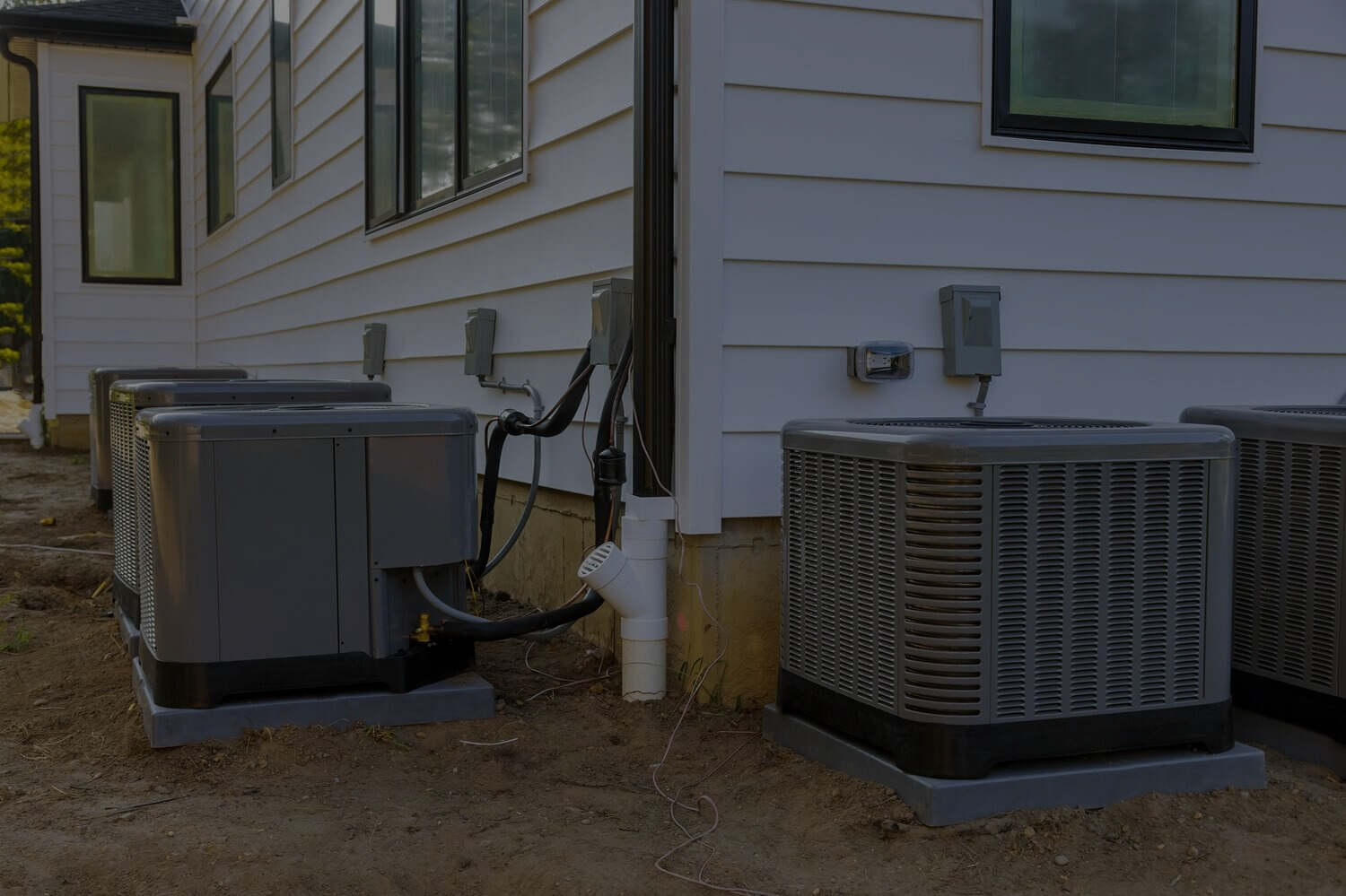
-
support
-
Blog
-
0 Comments
-
March 17, 2025
Does Air Conditioning Use Gas? Full Breakdown
Many prioritize staying cool throughout the summer, especially when temperatures rise. But, while air conditioners are necessary for comfort, they frequently raise doubts about how they work—and, more crucially, does air conditioning use gas? If you’ve been thinking about this as your energy bill has risen, you’ve come to the perfect spot. Let’s break everything down in a way that’s basic, straightforward, and easy to understand.
How Does an AC System Work?
To determine if your air conditioner utilizes gas, first, understand how it works. When you use an air conditioner, cool air does not appear out of nowhere. It simply transfers heat from within your home to the exterior. Here’s how the procedure works:
Evaporation
The adventure starts indoors. The refrigerant, a specialized liquid, absorbs heat from the air via the evaporator coil. As it does so, it evaporates into gas.
Compression
Next, the gaseous refrigerant is pumped into the compressor. The compressor squeezes the gas, raising its temperature and pressure. This prepares it for the following phase.
Condensation
The hot, high-pressure gas travels to the outside unit, where it encounters the condenser coil. The heat is discharged into the outside air, and the refrigerant cools and returns to liquid form.
Expansion
Before restarting the cycle, the liquid refrigerant passes through an expansion valve. This valve lessens its pressure, preparing it to absorb heat once more.
Does Air Conditioning Use Gas?
So, does air conditioning use gas in the same way a stove or a car does? The answer depends on the sort of air conditioning system you have.
AC Systems that Can Use Gas
Some systems use natural gas or propane, but not for cooling. Gas is utilized in these systems for heating, particularly during the winter months.
Hybrid (Dual Fuel) Systems
These systems are a combination of an electric heat pump and a gas furnace. When the weather is warm, the electric component cools your home. When it becomes cold, the gas furnace turns on. While they’re efficient, they blur the lines, which is why people often ask, Does air conditioning use gas?
Why Does AC Need Gas?
In systems such as gas-powered furnaces or hybrid systems, gas is exclusively used for heating. Most people are referring to the cooling portion of the AC, which runs on electricity. That implies that if you operate your air conditioner during the summer, you are unlikely to need any gas. So what’s the quick answer? No, cooling does not require gas unless you have a hybrid system.
AC Systems that Typically Do Not Use Gas
Most current air conditioning systems rely purely on electricity. Here’s an overview of the common types:
Central Air Conditioning
This system uses ducting to cool the entire home. It is completely electric and does not require gas to work.
Ductless Mini-Split Systems
These are ideal for homes without ducting. Each unit is electric, and in certain types, it may cool as well as heat.
Window Units
These little yet powerful appliances plug straight into a wall socket and require no gas to operate.
Portable Air Conditioners
These, like window units, are movable and powered by electricity.
Geothermal Heat Pumps
These systems extract heat from the earth in the winter and push it back in the summer. Despite their efficiency, they run entirely on electricity and do not consume gas.
How Do I Know if My AC Runs On Gas?
Still not sure? Here’s how to tell:
- Check the manual: It will specify the type of fuel your system utilizes.
- Inspect your utility connections: If your HVAC system is linked to a gas line, it may run on gas.
Call a technician: An expert can tell you within minutes what sort of system you have.
How Much Gas Does Air Conditioning Use?
If your system is gas-powered or hybrid, it may utilize some gas, but primarily for heating. Let’s focus on your main concern: how much gas does air conditioning use during hot weather?
Very little or none.
Gas is not generally used in cooling. Instead, electricity powers the cooling system. However, if you’re wondering what kind of gas ACs use, it’s typically a refrigerant like R-410A or R-32 in modern systems, while older units may use R-22 (Freon). So, if you’re worried about your gas bill because you turned on the air conditioner, it’s likely not the cause.

Does Using Your Air Conditioning Waste Gas?
A fair question! The truth is that using air conditioning waste gas depends on your system. If your gas use is increasing, the problem is most likely somewhere else—perhaps a water heater, oven, or furnace. Unless your air conditioner is part of a dual-fuel system that operates in heating mode, gas is not used for summer cooling at all.
Why Does AC Waste So Much Gas?
Turning off your air conditioner will surely save energy, but not petrol. Because most air conditioning systems use electricity, turning them off saves you money on your electric account rather than your gas cost.
Does Turning the AC off Save Gas?
Air conditioning systems might be a little perplexing. And when energy expenses rise, it’s understandable to desire answers. Whether you want to figure out if your system utilizes gas or how to save money on cooling, we’ve got you covered.
More Questions About Does Air Conditioning Use Gas? We Can Help
Air conditioning systems can be a bit confusing. And with energy bills climbing, it’s natural to want answers. Whether you’re trying to figure out if your system uses gas or how you can save money on cooling, we’ve got your back.
South Shore Mechanical has been assisting homeowners like you in making more informed HVAC decisions. Whether you need a new system, a tune-up, or a simple inspection, we’re only a phone call away. Let us take a look and address any queries you may have, because comfort should not be accompanied by confusion.
Contact us immediately and be assured that your air conditioning system is in capable hands.

